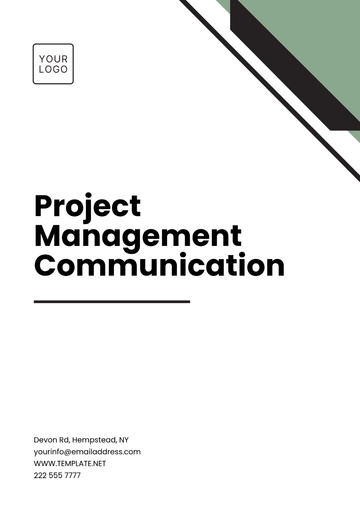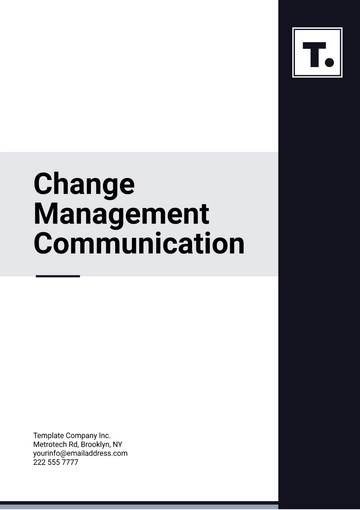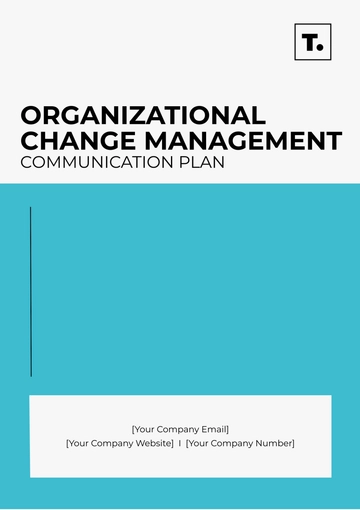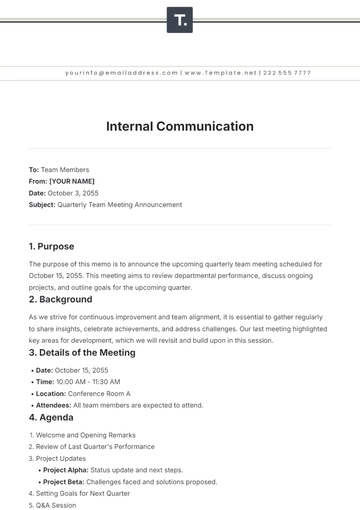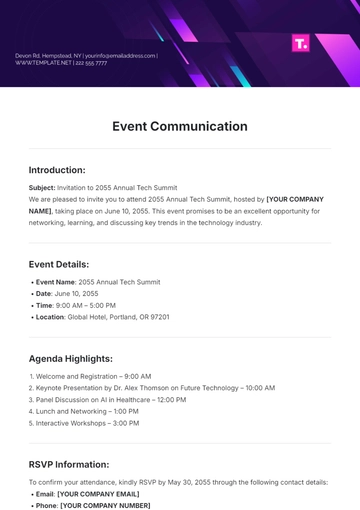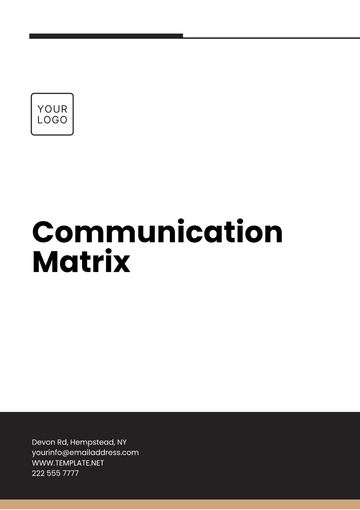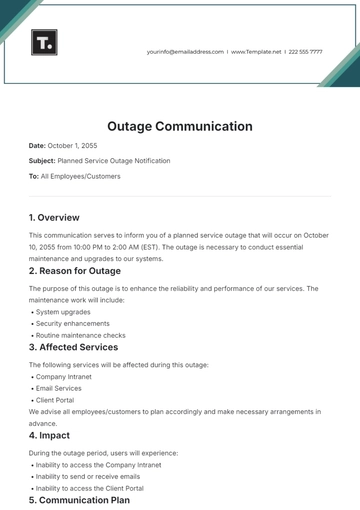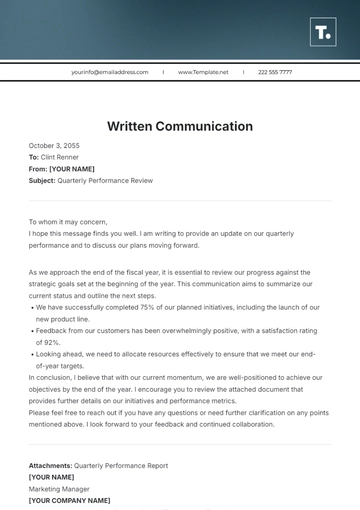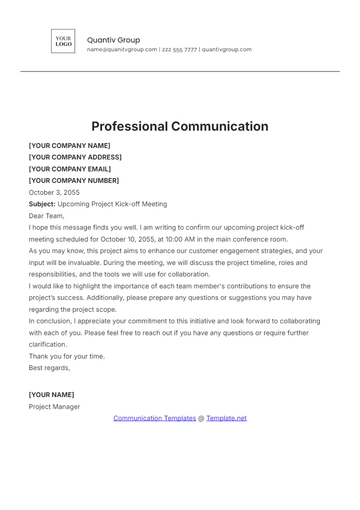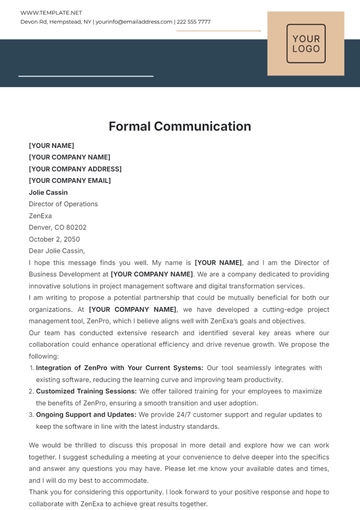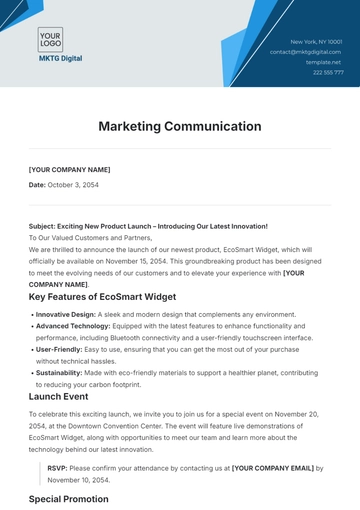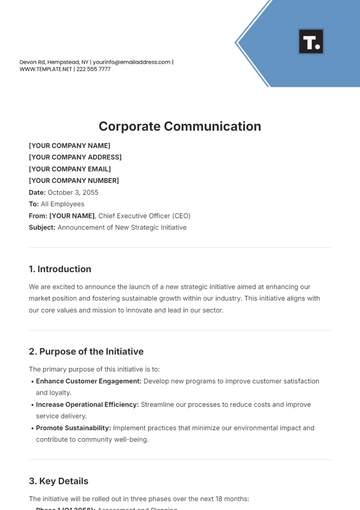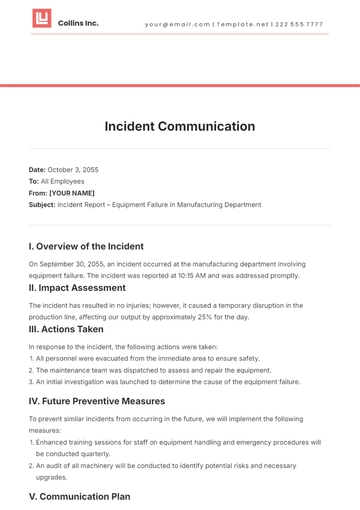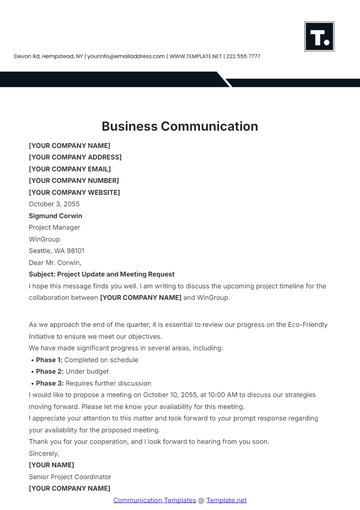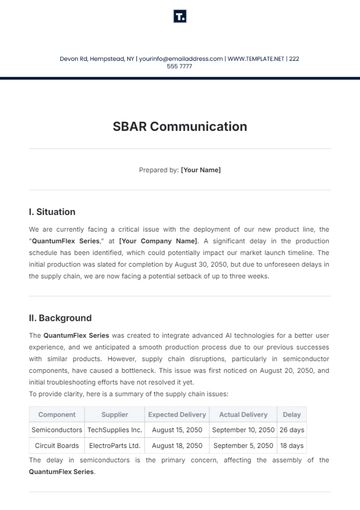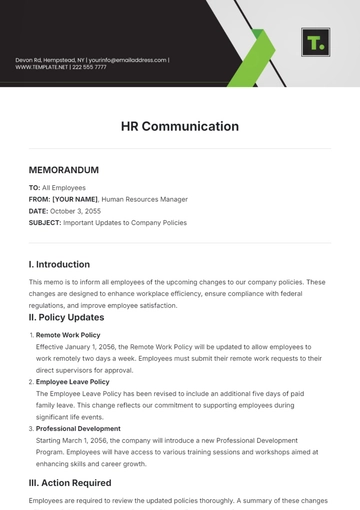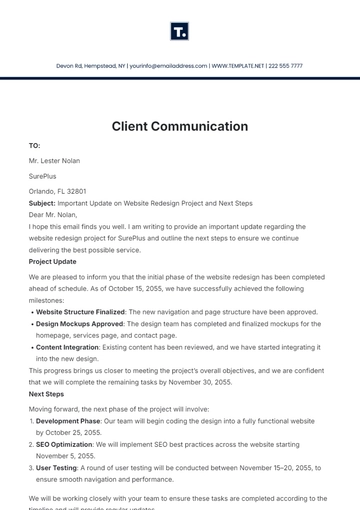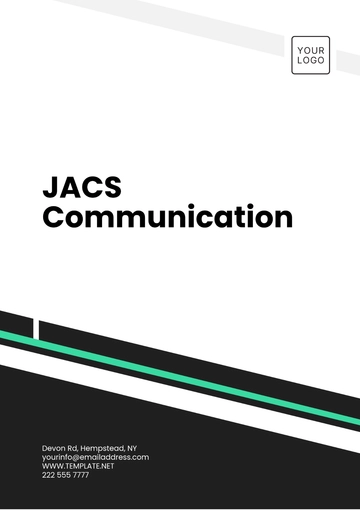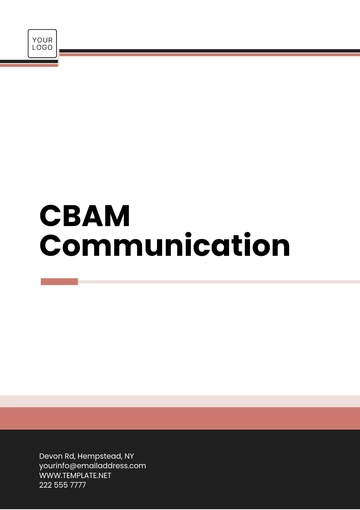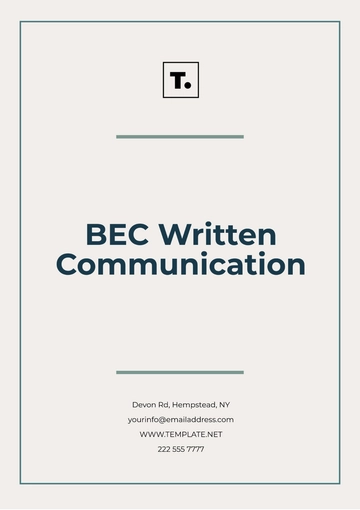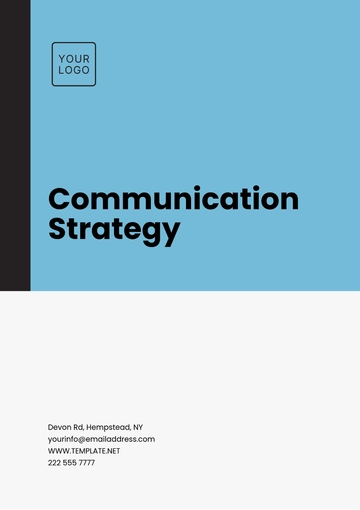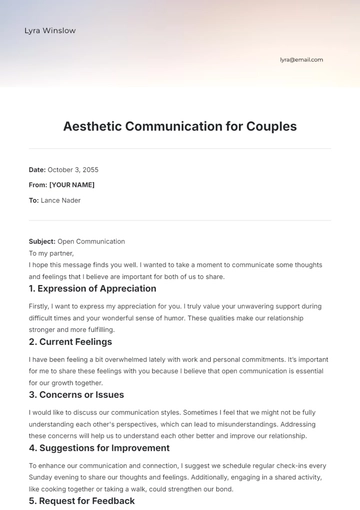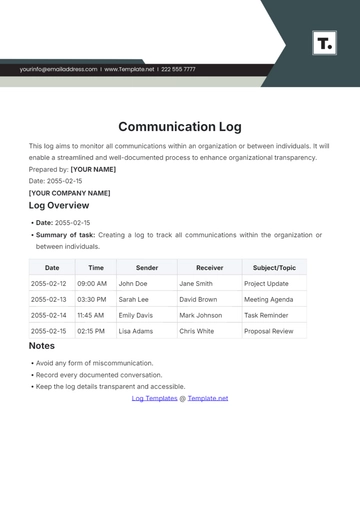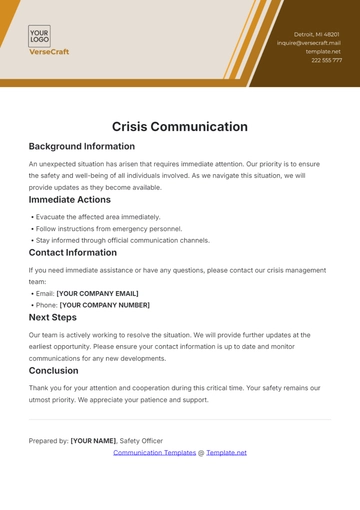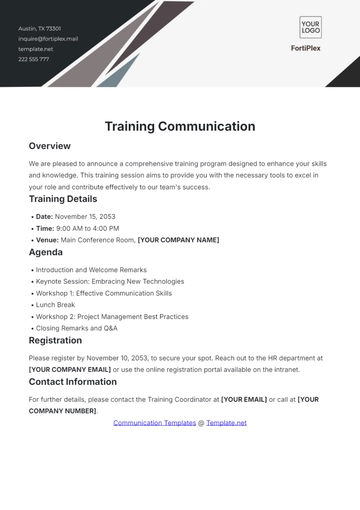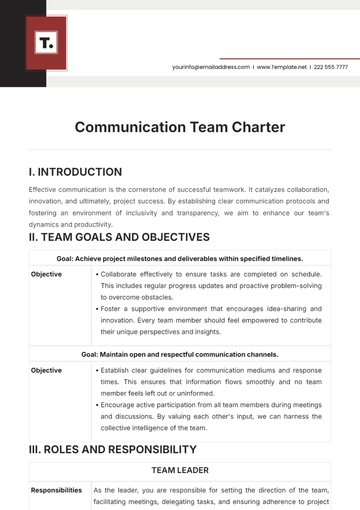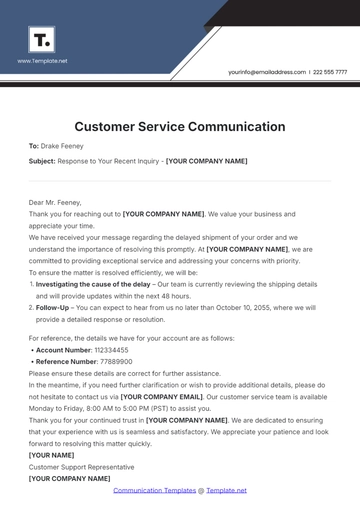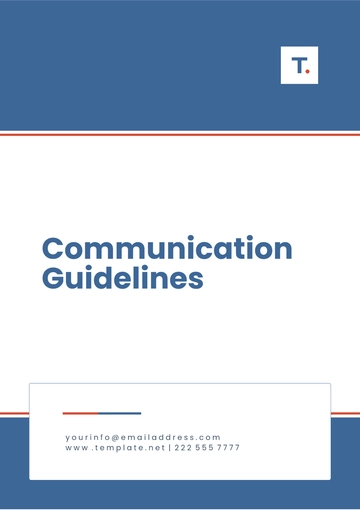Free Communication Team Charter
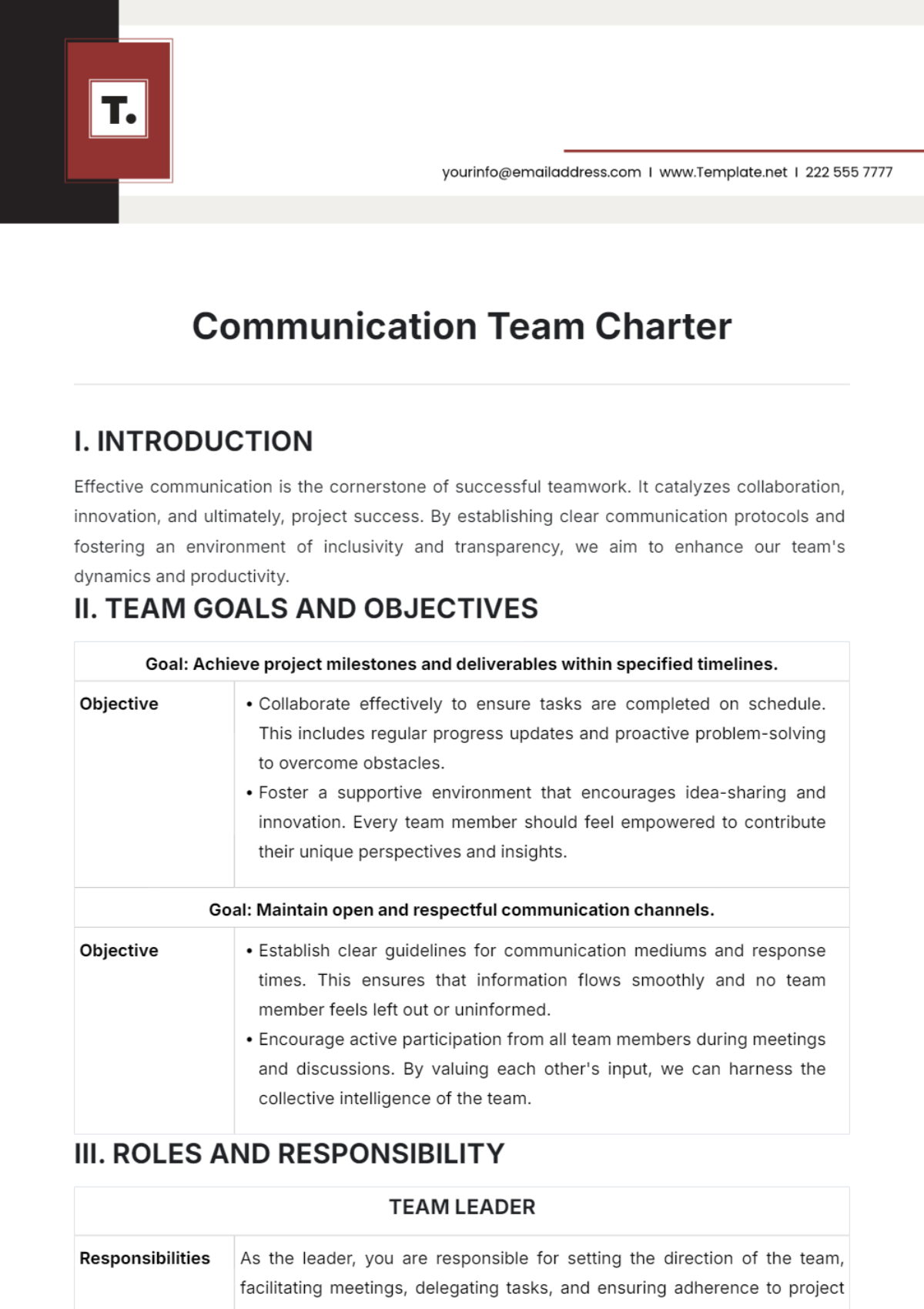
I. INTRODUCTION
Effective communication is the cornerstone of successful teamwork. It catalyzes collaboration, innovation, and ultimately, project success. By establishing clear communication protocols and fostering an environment of inclusivity and transparency, we aim to enhance our team's dynamics and productivity.
II. TEAM GOALS AND OBJECTIVES
Goal: Achieve project milestones and deliverables within specified timelines. | |
Objective |
|
Goal: Maintain open and respectful communication channels. | |
Objective |
|
III. ROLES AND RESPONSIBILITY
TEAM LEADER | |
Responsibilities | As the leader, you are responsible for setting the direction of the team, facilitating meetings, delegating tasks, and ensuring adherence to project timelines. You also serve as the primary point of contact for external stakeholders. |
TEAM MEMBERS | |
Responsibilities | Each team member plays a crucial role in the success of the project. Your responsibilities include actively participating in discussions, completing assigned tasks promptly, and providing regular updates on progress. Collaboration and accountability are key to our collective success. |
COMMUNICATION COORDINATOR | |
Responsibilities | Your role is pivotal in managing communication channels, scheduling meetings, and disseminating information. You are the glue that holds the team together, ensuring everyone is on the same page and deadlines are met. |
IV. COMMUNICATION PLAN
Preferred Communication Channels: We have identified Slack as our primary communication platform for daily updates and quick queries. Email will be used for formal communication, such as sharing important documents or announcements. Additionally, we will hold weekly in-person meetings to facilitate comprehensive discussions and brainstorming sessions.
Meeting Schedule: Our team will convene for weekly meetings every Monday at 10:00 AM. Ad-hoc meetings may be scheduled as needed to address urgent matters or discuss specific project milestones.
Response Times: We commit to responding to non-urgent queries within 24 hours to ensure timely resolution of issues. For urgent matters requiring immediate attention, team members are expected to respond promptly to avoid any delays.
Information Sharing: All relevant project information, including meeting agendas, minutes, and task assignments, will be shared via designated channels to ensure transparency and accessibility for all team members.
V. DECISION-MAKING PROCESS
Consensus: Whenever possible, we will strive to reach consensus among team members for major decisions. This fosters a sense of ownership and collective responsibility for the outcomes of our actions.
Voting: In cases where consensus cannot be reached, we will resort to a democratic voting process with the majority rule. This ensures that decisions are made efficiently and transparently, with due consideration for diverse perspectives.
VI. RISK MANAGEMENT
We will proactively identify potential risks and issues that may impact project success, considering both internal and external factors. This includes risks related to resource constraints, technological challenges, and unforeseen market changes.
To mitigate identified risks, we will develop contingency plans and allocate resources accordingly. This may involve reallocating tasks, securing additional funding or expertise, or revising project timelines to accommodate unforeseen delays.
We will regularly review and update our risk register to assess the effectiveness of our risk mitigation strategies and address emerging threats on time. By staying vigilant, we can minimize the impact of potential disruptions on project delivery.
VII. TRAINING AND DEVELOPMENT
We encourage all team members to pursue relevant training opportunities to enhance their skills and knowledge. This may include workshops, online courses, or attending industry conferences to stay abreast of emerging trends and best practices.
We believe in fostering a culture of knowledge-sharing within our team. This includes sharing insights gained from training sessions, documenting lessons learned from past projects, and offering peer-to-peer mentoring to support each other's professional growth.
VIII. PERFORMACE MEASUREMENT AND REPORTING
To measure our team's performance against project objectives, we will define key performance indicators (KPIs) related to project milestones, deliverable quality, and team collaboration. These metrics will serve as benchmarks for assessing our progress and identifying areas for improvement.
We will generate regular progress reports to track our performance and communicate updates to stakeholders. These reports will highlight achievements, challenges, and action plans for addressing any deviations from our project plan. Transparency and accountability are paramount in our reporting process.
IX. CONTINGENCY PLANNING
Scenario Planning: Anticipating potential disruptions, we will develop contingency plans to ensure continuity of project operations. This may involve identifying alternative suppliers, securing backup resources, or implementing alternative communication channels in the event of technical failures or unforeseen circumstances.
Resource Allocation: We will allocate backup resources and establish clear protocols for activating contingency measures as needed. This will enable us to respond swiftly to unexpected challenges and minimize any adverse impacts on project delivery. Flexibility and adaptability are key to effective contingency planning.
X. CONCLUSION
By adhering to the principles outlined in this Communication Team Charter, we affirm our commitment to fostering a culture of effective communication, collaboration, and accountability within our team. Through clear communication channels, proactive risk management, and continuous learning, we aim to achieve our goals and deliver successful outcomes for our projects. Together, we are stronger, smarter, and better equipped to tackle any challenges that may arise on our journey toward success.
XI. SIGNATURES
Each team member acknowledges and agrees to the terms outlined in this charter by signing below:
Name/s | Date Signed | Signature |
|---|---|---|
[Your Name] | [DATE] |
|
[Team 1's Name] | [DATE] |
|
[Team 2's Name] | [DATE] |
|
- 100% Customizable, free editor
- Access 1 Million+ Templates, photo’s & graphics
- Download or share as a template
- Click and replace photos, graphics, text, backgrounds
- Resize, crop, AI write & more
- Access advanced editor
Enhance and Discover the Communication Team Charter Template by Template.net. Crafted for seamless collaboration, this editable and customizable tool empowers teams to define goals, roles, and strategies with precision. Effortlessly tailor your charter using our Ai Editor Tool, ensuring clarity and alignment from inception to execution. Elevate your teamwork today.

